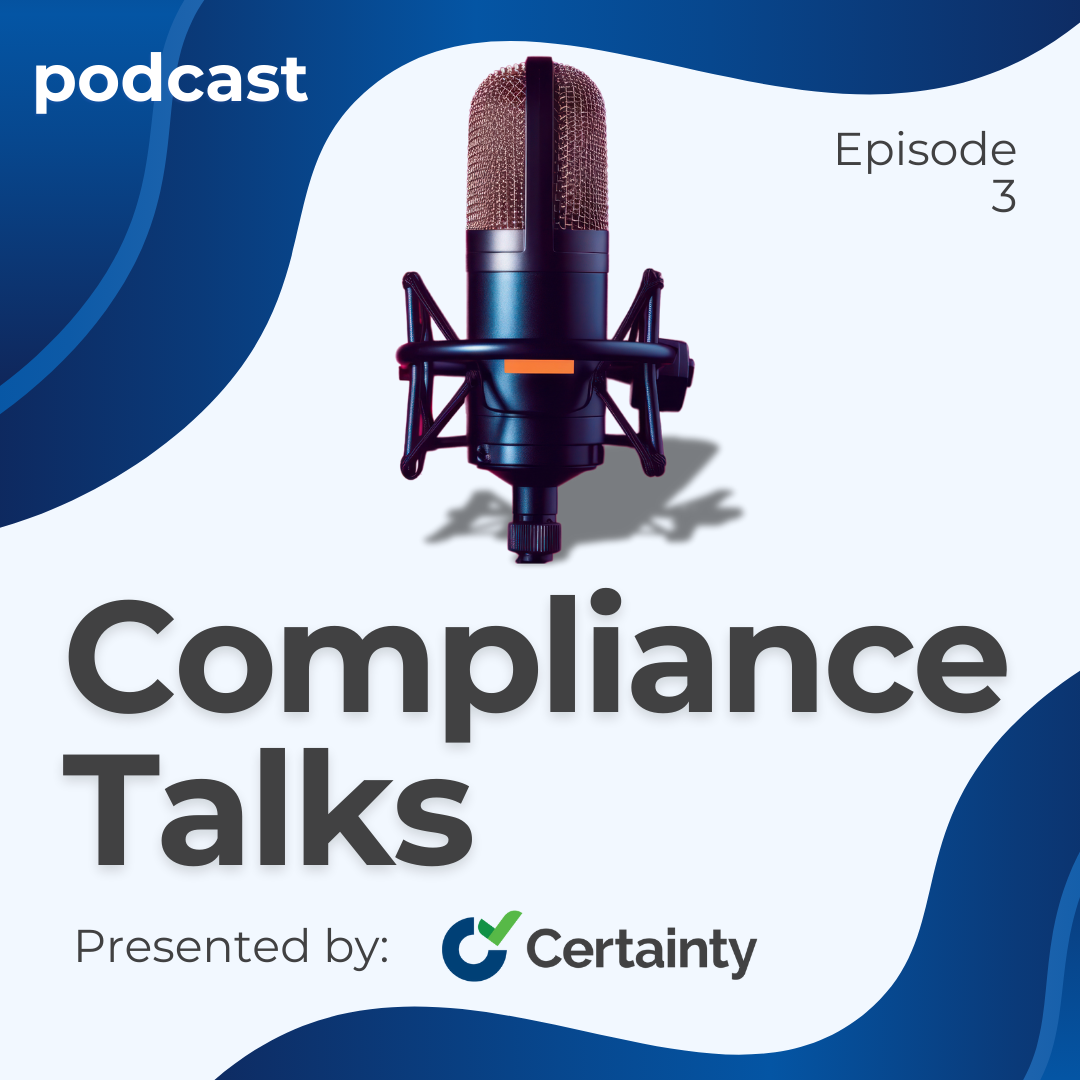
The Role of Supplier Engagement in Supply Chain Sustainability
* Disclaimer: This podcast was created by the Certainty Software team, with AI tools used in select processes to enhance production efficiency. The content, insights, and expertise shared are authentically developed by our team, with AI serving only to streamline certain aspects of editing and distribution.
Many global organizations are unaware that emissions from their value chain have an impact 11.4 times greater than operational emissions. This staggering statistic highlights the importance of engaging suppliers to achieve a company’s supply chain sustainability goals. But how can businesses build meaningful relationships with suppliers to enhance their sustainability efforts?
In Episode 3 of our Compliance Talks podcast series, we delve into the important role of engaging suppliers in achieving supply chain sustainability. Read on to discover the key takeaways from this episode and learn how to effectively align your suppliers’ practices with your sustainability goals.
Why Supplier Engagement Matters
Value chain emissions, commonly known as Scope 3 emissions, account for the majority of a company’s environmental impact. By engaging with suppliers, companies can:
- Improve data collection and reporting processes
- Identify opportunities for emission reduction across the value chain
- Enhance their reputation and strengthen relationships with stakeholders
- Build more robust, long-term partnerships with suppliers
The advantages create a positive ripple effect for both the environment and business outcomes. This episode examines these benefits in detail and offers a clear framework for getting started.
Navigating the Regulatory Landscape
The regulatory environment is changing quickly, with initiatives such as the Corporate Sustainability Reporting Directive (CSRD) transforming how organizations approach sustainability. These regulations require increased transparency and accountability, making comprehensive supplier engagement programs more crucial than ever.
In the podcast, we discuss how companies can stay ahead of these regulatory changes while promoting a proactive, sustainability-first mindset.
The Three Key Phases of Supplier Engagement
Effective supplier engagement doesn’t happen overnight. It requires a phased approach:
- Data Collection – Start by gathering accurate and comprehensive sustainability data from your suppliers.
- Analysis – Identify emission hotspots and prioritize areas for improvement.
- Driving Tangible Improvements – Collaborate with suppliers to implement action plans and track measurable outcomes.
Our podcast episode offers practical tips for each of these phases, ensuring your strategy is both impactful and scalable.
Technology as The Game-Changer for Supplier Engagement
Technology is revolutionizing supplier engagement, making it easier for organizations to collect data, analyze trends, and implement improvements. In this episode, we discuss the role of supply chain sustainability software, as highlighted in the Verdantix Green Quadrant report.
From tracking Scope 3 emissions to fostering real-time collaboration, technology adoption is no longer optional—it’s essential. Listen to learn how industry leaders are leveraging these tools to drive sustainable supply chains.
Common Challenges and How to Overcome Them
Supplier engagement isn’t without its challenges. Resistance to change, lack of transparency, and misaligned priorities can hinder progress. The podcast provides actionable strategies to:
- Build trust and alignment with your suppliers.
- Overcome resistance by highlighting shared goals and benefits.
- Develop clear communication channels and frameworks for collaboration.
Listen Now and Take Action
Ready to transform your supply chain sustainability strategy? Listen to Episode 3 of Compliance Talks: The Role of Supplier Engagement in Supply Chain Sustainability. Gain the confidence to engage your suppliers effectively and make measurable progress toward your sustainability goals.

Spend Time On Prevention
Not Paperwork
Watch our overview video to see how your organization can benefit from Certainty.
Watch Video



